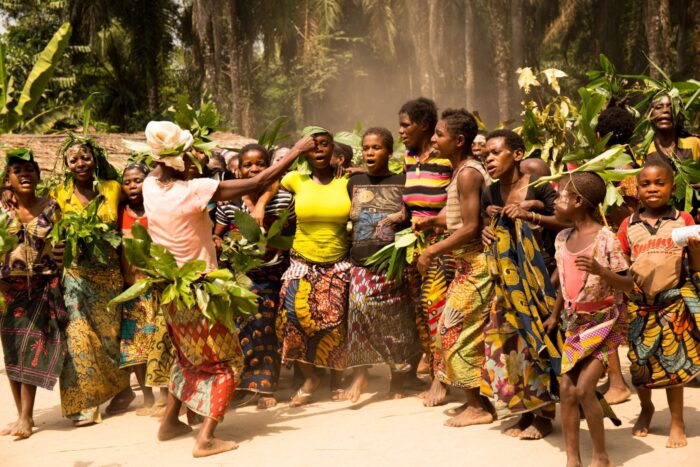Nov 14 2023
Hunter-Gatherers and Childcare
 What is “natural” for humans? It’s often hard to say, and in my opinion this is a highly overused concept. Primarily this is because humans are adaptable – we adapt to our environment, our situation, and our culture. So it is “natural” for us not to have a natural state.
What is “natural” for humans? It’s often hard to say, and in my opinion this is a highly overused concept. Primarily this is because humans are adaptable – we adapt to our environment, our situation, and our culture. So it is “natural” for us not to have a natural state.
But this does not mean there are no insights to be gained by considering the evolutionary milieu in which our ancestors spent the vast majority of their existence. By rapidly changing our environment we may be pushing the limits of our adaptability. We also need to consider the difference between surviving and thriving. We may survive in the world we have created for ourselves, but pay some price. For those of us living in industrialized societies, it’s also difficult to appreciate how different our lives are from the vast majority of human history and societies. What is now “normal” for us is a recent anomaly.
We can apply this line of thinking to many aspects of our lives, but I want to consider childcare. A recent study looking at Mbendjele BaYaka Hunter-Gatherers in the Republic of Congo found a number of interesting thing regarding childcare. Young children received physical contact for the majority of their day. Overall they had near constant attention from a caretaker. About half of this attention came from someone other than the child’s mother or parents. Children benefitted form a network of caregivers of 10 or more people, and occasionally as many as 20 or more. Older children, teenagers, and adult relatives all contributed to childcare. These networks potentially have a number of implications.
First, parents have a great deal of support. More than half of a child’s crying events at night were attended to by someone other than a parent. For those of you who have children you know this can be the most challenging aspect of raising a baby – the constant need for attention, and the resulting lack of sleep. This is why perhaps the most critical question new parents receive is – are they sleeping through the night yet? For my patients with young children, this is often the dominant factor in their lives. They are not getting enough sleep due to childcare, resulting in a long list of possible medical implications. This also limits treatment options. You cannot give them something to help them sleep through the night or anything too sedating because they need to be able to get up in the middle of the night for childcare. They basically have to white-knuckle it through this phase of childcare.
The only real option is to have others who can relieve them. But options are limited. Even if both parents equally contribute, it’s still very challenging. The people who seem to have the easiest time are those who have in-laws living with them who can share the burden. And that is a possible implication of this study.
While the authors appropriately warn against overinterpreting the results, there are some common-sense implications we can consider. One is that, since we spent most of our evolutionary time living in “village” settings with large networks of childcare providers, children may be adapted to the constant attention this allows. Now, making them spend the night alone in their own room may be an anomaly. Limiting the care to two parents, one or both of whom may be working, is also a recent departure from human experience.
Daycare for working parents is also very different from the hunter-gatherers in this study and industrialized societies. The hunter-gatherers had a ratio of 5 caregivers per child. Daycare often provides one caregiver for multiple children. Another potential benefit of the childcare networks seen is that older children and teenagers participate in childcare. This affords training and experience in childcare, that would likely make them feel more confident and capable when it is their time to be new parents.
None of these findings are really surprising, but they do support with fresh data what has generally been recognized – in most societies children are raised by networks of caregivers. In modern industrialized society nuclear families generally exist in isolation, with a much heavier burden of childcare being placed on the parents. Single-parent homes are under even more stress. To simply expect parents to get through it might not be realistic. We cannot “blame” any of modern society’s ills on this fact, but it is certainly worth further research. I would be interested to know if there is any correlation between anxiety, for example, and the number of caregivers and amount of attention people received as young children. These would be difficult studies to do, and by necessity would be observational, but likely some interesting data could be extracted that would have implications for this question.
What does all this mean from a practical point of view? The short answer is that as a society we may need to commit more resources overall to childcare. What we consider to be reasonable and sufficient may need to change. Individually people planning to become new parents may want to consider their support network and what they consider adequate support. Long term we may want to collectively reconsider what we consider “normal” or optimal in terms of living situation. There may be benefits to having extended families living close to each other, or even in the same home, as the rule rather than the exception. Again, what we are doing now, mostly living as single nuclear families, is the anomaly in human history.






